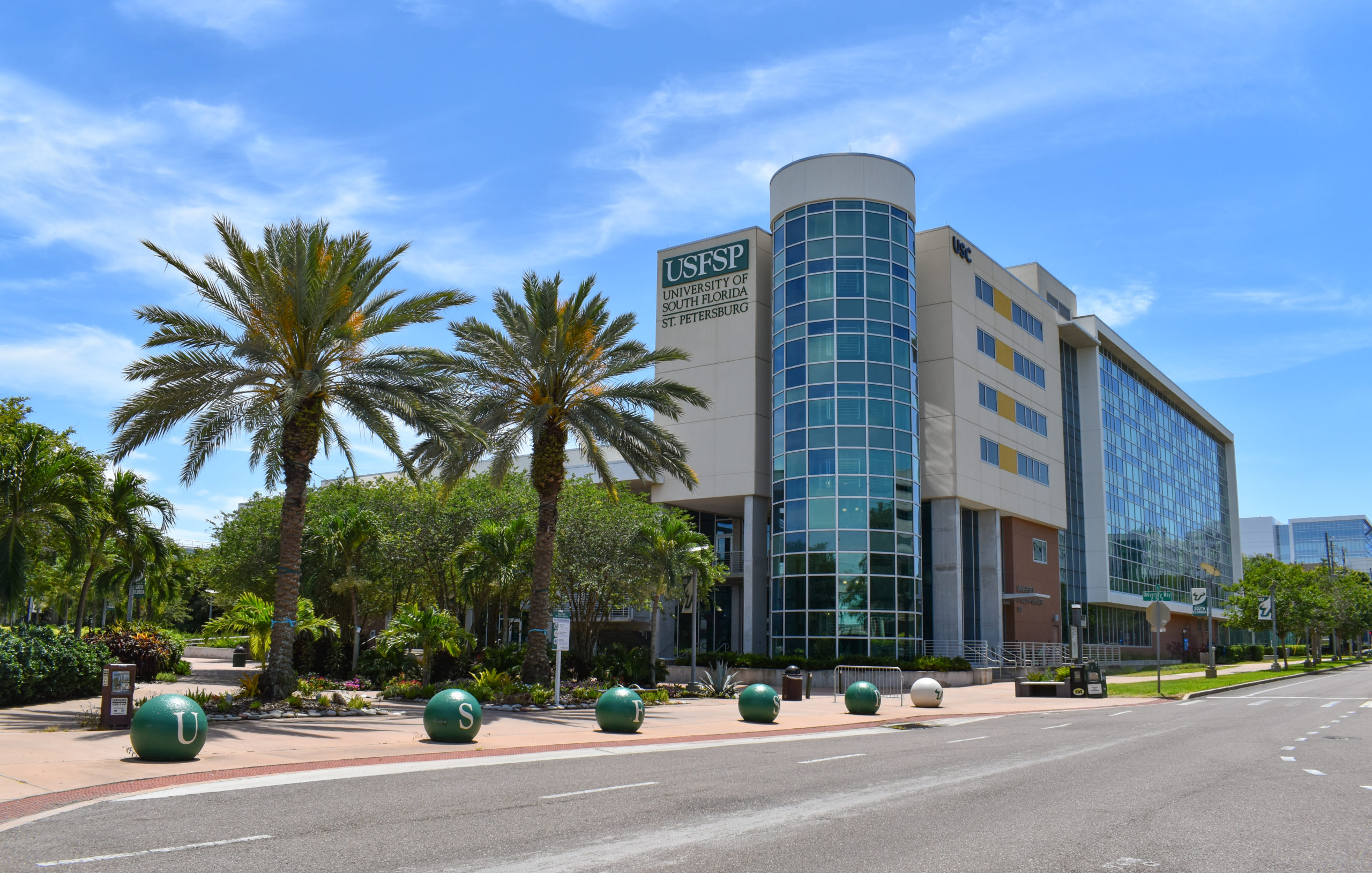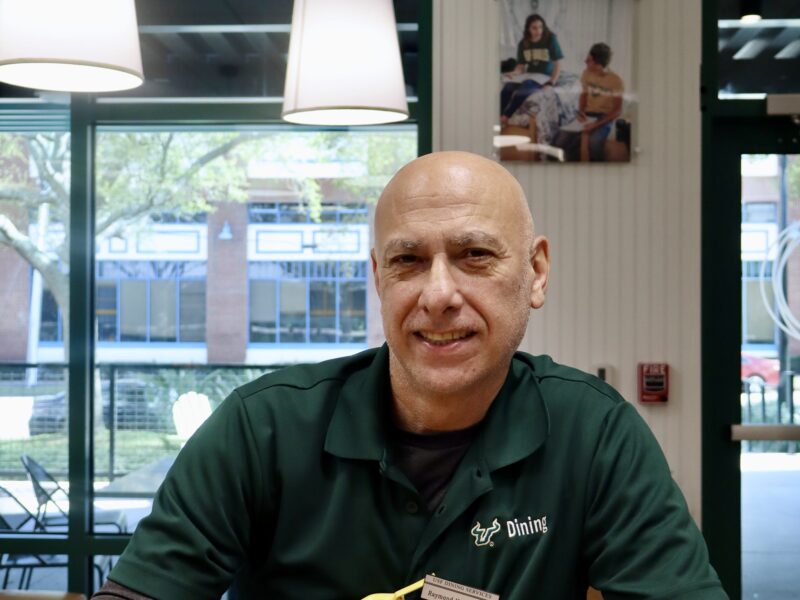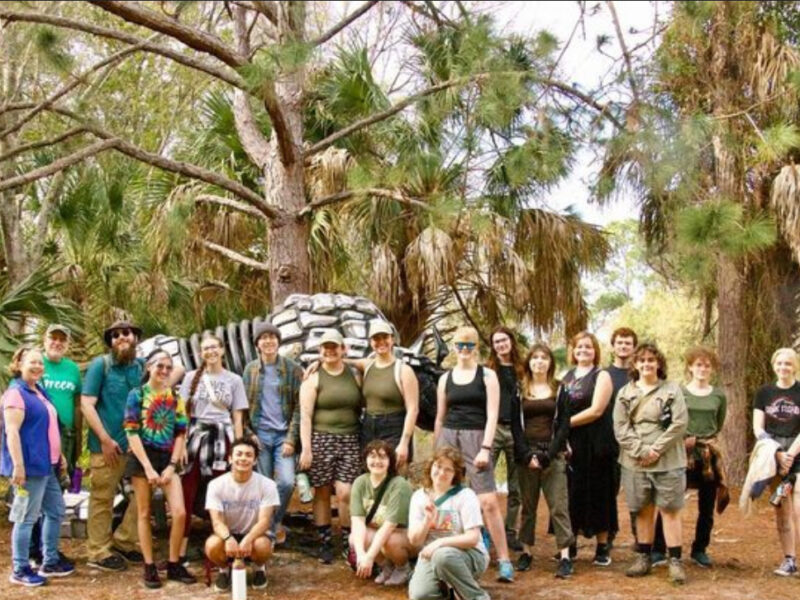Courtesy of Annalise Anderson | The Crow’s Nest
By Annabel Hutchings
Choosing a major in college can be both a daunting and thrilling experience. Some students show up on the first day knowing exactly how they want the rest of their lives to go and the steps needed to get there. Others may hope to find their direction by feeling their way through it.
This decision doesn’t have to dictate the rest of someone’s life, but it can have a hefty impact on their direction in the future. This leaves students with a big responsibility in their hands.
For Grace Studdiford, a freshman studying biology at the University of South Florida St. Petersburg , the decision was more of a calling of passion.
“I never really thought that it would be possible to study animals and that it would be a viable career choice, but it’s one of the only things I’m really passionate about, so I figured I might as well go for it,” Studdiford said.
When there is a deep desire to pursue a certain direction in education, there is not much that can stand in the way of it. It’s students like this who show what the opportunities of higher education can do for people.
Though when the weight of this decision is factored into the evolving nature of the workforce, there are times when students begin to reconsider what path is truly right for them. The COVID-19 pandemic was a life-altering situation that changed the way we operate in educational and work environments, therefore changing people’s mindsets toward their career pursuits.
In an article by Forbes about the pandemic’s influence on students’ major changes, these decisions are attributed to the shift in the social environment during that time. Students began to lean into majors that have to do with humanities and social issues because they were inspired to get involved in changes happening.
Students’ decisions about their choice of major can be influenced by an endless list of factors, but when there is a major shift in the state of the world that they live in, it can make people reconsider what they want to do going forward.
Arleyna Loss, an education advisor at USF St. Petersburg, spoke about the changes that she’s seen in higher education due to the shifts from the pandemic.
“I do think that the pandemic has changed how a lot of people view education in general,” Loss said. “It has changed people’s perceptions and priorities on what’s important in their lives.”
Students and faculty alike had begun to reconsider what they want out of their educational and work experiences. Jobs that students may have been aiming for when they entered school may have changed so drastically because of the pandemic that they are no longer as desired. Majors that seemed worth the effort pre-pandemic may be written off due to the amount of commitment that comes with many in-person classes.
The pandemic forced people into many situations that may have been initially uncomfortable, but people eventually began to adjust. This proved to be true in the transition to working from a distance in both school and work environments.
“Some students who weren’t open to online before, maybe prefer it now… Students have a bit more self-efficacy about being able to succeed online than they did before,” said Amanda Timmers Bonvallet, a College of Arts and Sciences Academic Advisor at USF St. Petersburg.
People who once prioritized their presence in their work now have come to understand how much they value personal time. Others began to miss contact with other people, which has led them to strive for more socializing in the progression to a post-pandemic world.
“I think a lot of faculty work in education because they want to work with students, they want to make a difference,” Timmers said. “Shifting to online was hard on the students, but it was also hard for me personally because I missed that interaction.”
This speaks for what role advisors have in students’ lives. In an article by Inside Higher Ed about changes in higher education due to COVID-19, Jenny Rickard, president and CEO of the Common App, shared what changes she saw in admissions staff.
“They were so sensitive to the individual dynamics that every student was experiencing,” she said. “It’s a tribute to the profession.”
The pandemic was difficult in many ways, but sometimes that difficulty can serve as a growing pain. For many people in an educational environment, this opened their eyes to what they would like to prioritize in their future.
Students who felt that they had a path before may have found themselves detouring because of a realization that would not have happened otherwise. While this could feel uncomfortable and daunting initially, there is a great relief that comes with a needed change.



